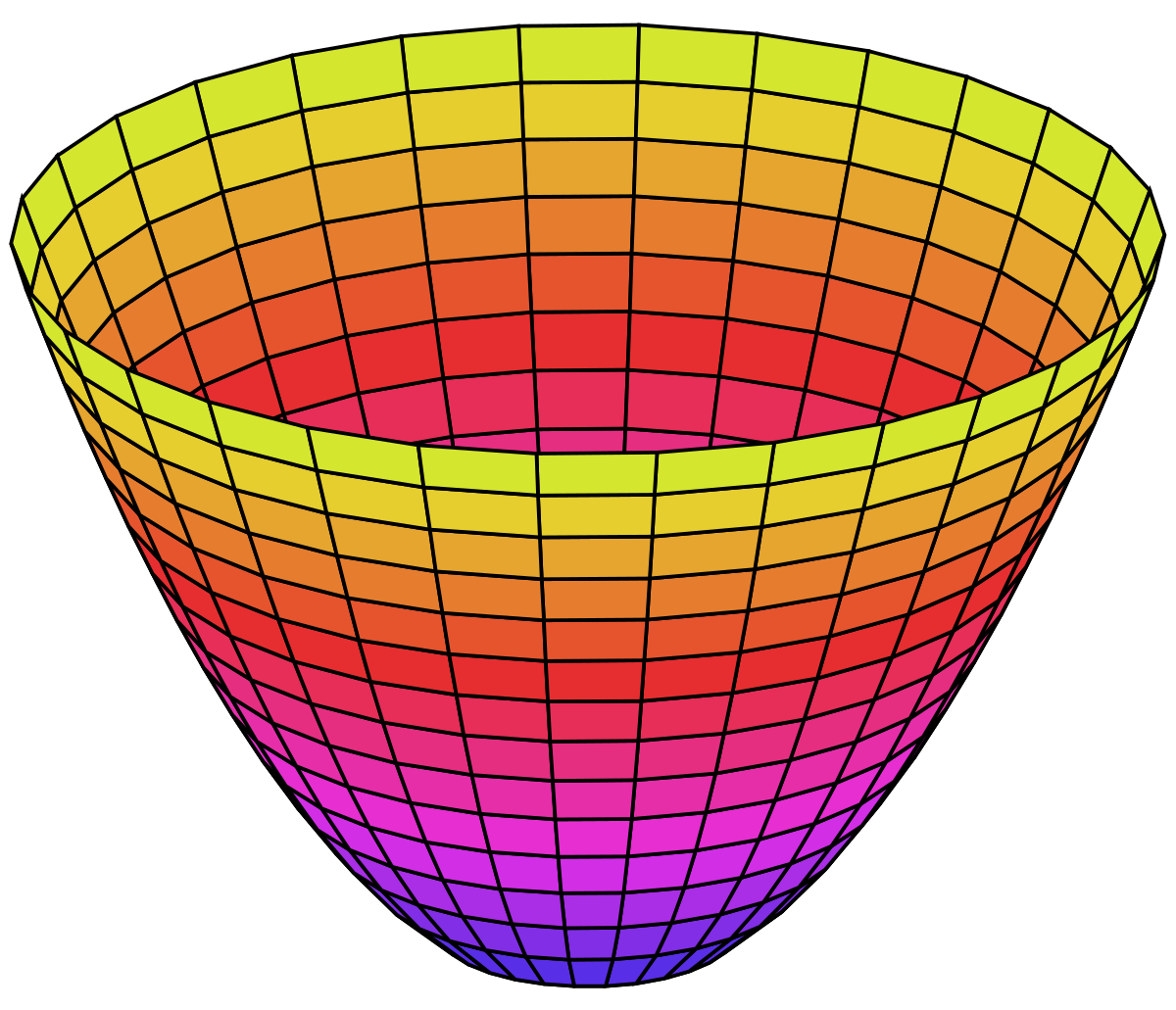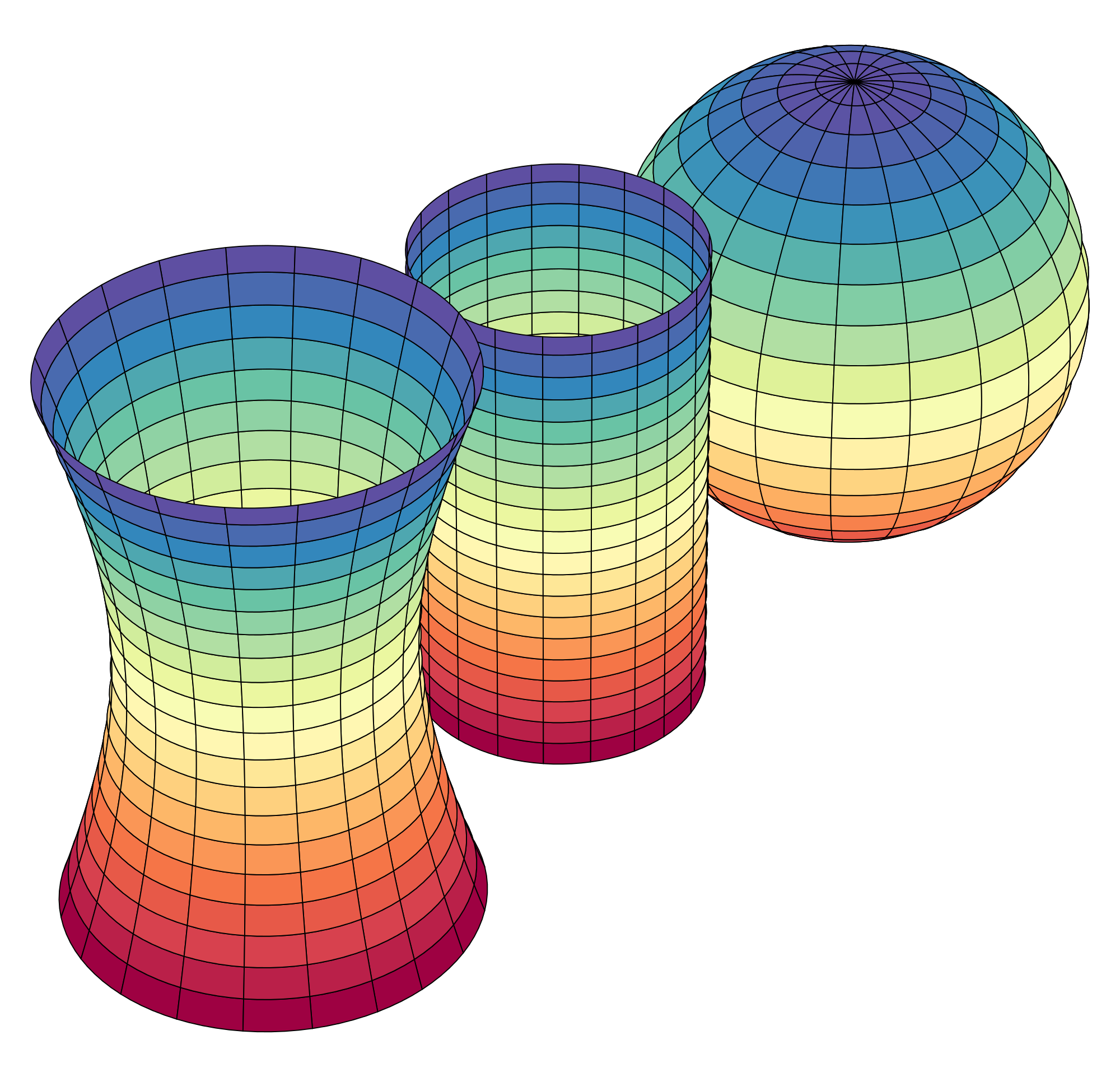Differential Equations - The Modern Approach
Differential Equations is a sophomore-level course in the calculus sequence, taken after the Calculus II course (integration theory with Taylor Series, Sequences, et al.) Freshman Math Courses
Freshman Math Courses
- Applied Calculus for Business [3 credits] [3CR]
- Applied Calculus for Life Science [3 credits] [3CR]
- Calculus I[4 credits] [4CR]
- Calculus II[4 credits] [4CR]
 Sophomore Math Courses
Sophomore Math Courses
- Multivariable Calculus III [4 credits] [4CR]
- Differential Equations [3 credits] [3CR]
- Linear Algebra [4 credits] [4CR]
- Probability Theory [3 credits] [3CR]
 Honors Math Courses
Honors Math Courses
- Honors Calculus I [5 credits] [5CR]
- Honors Calculus II [5 credits] [5CR]
- Honors Calculus I+II for Data Science [5 credits] [5CR]
- Honors Multivariable Calculus [5 credits] [5CR]
- Honors Differential Equations [4 credits] [4CR]
- Honors Linear Algebra [5 credits] [5CR]
- Honors Linear Algebra for Data Science [5 credits] [5CR]
 Lower Division Math Courses
Lower Division Math Courses
- Precalculus with Trigonometry [4 credits] [4CR]
- Introductory Statistics [4 credits] [4CR]
- Finite Mathematics [3 credits] [3CR]
- Discrete Mathematics [4 credits] [4CR]
 Upper Division Math Courses
Upper Division Math Courses
- Computational Abstract Algebra [4 credits] [4CR]
- Computational Differential Geometry [4 credits] [4CR]
A modern approach to differential equations is forget all of that paper and pencil classical technique - after all, is it really important to learn how to calculate the square root of 3 by hand? Our Modern approach to Differential Equations via the Calculus&Mathematica curriculum is to look at differential equations as what they mean - not how to solve the (rather trivial) cases you can do by hand. Having a powerful tool like Mathematica means you can obtain the solution of a differential equation (if there is one!), but what does the solution mean? How do you interpret it? What does its graph mean? What if the differential equation changes just slightly? What is a driving term?
This modern approach to Differential Equations is a superior approach for physics, economics, and data science. Instead of having a bag of "here's how you solve this differential equation by hand", students leave the course with an appreciation to engage against any differential equation!
Here is a video on the Differential Equation course:
Differential Equation Course
Data Science and Distance Calculus
Distance Calculus - Student Reviews





Date Posted: Jan 8, 2021
Review by: Cristian Mojica
Student Email: comojica@ucdavis.edu
Courses Completed: Probability Theory
Review: A fantastic course! I was able to complete it in about half a year (with a few gaps) alongside other coursework I was completing. There are no deadlines except the one-year mark after registering, so you work at your own rate and schedule. Probability Theory is required for me to apply to Master's programs in Statistics, so I was glad when I found Distance Calculus. While the course was slightly less difficult than I originally expected, there were parts that definitely slowed me down and made me think. (Also, although calculus is not everywhere in the course, it is everywhere in normal and exponential variables and beyond, so make sure to review derivatives and integrals (single and double)!) I used Mathematica for my software, and it helped speed along calculations and proved to be the perfect stage and tool for this material. I think visual learners will absolutely revel in how the material is presented in this course. (I know I did!) As there is plenty of writing and calculation to do, you have many opportunities to develop and strengthen your voice as a mathematician. The modern format of 80% electronic notebook work and 20% handwritten work is an excellent mixture for studying probability theory and grasping its core ideas. Dr. Curtis is clear in his answers to any questions and concerns you may have and is highly responsive to email and chat, and to responses you leave in your notebooks. He truly wants to help you and to see you succeed, and he is always on your side. I highly recommend Probability Theory with Distance Calculus!





Date Posted: Jan 12, 2020
Review by: Anonymous
Courses Completed: Calculus I
Review: This course is amazing! I took it as a requirement for admission to an MBA program, and couldn't have been happier with the quality and rigor of the course. I previously took calculus two times (at a public high school and then a large public university commonly cited as a "public ivy"), this course was by far the best and *finally* made the concepts click. Previously I had no idea what was going on because terrible PhD students were teaching the course and saying stuff like "a derivative is the slope of a tangent line" - ??? but what does that mean ???, but the instructors in the Shorter University course explain everything in ways where it FINALLY made sense (e.g., "imagine a roller coaster hitting the top of a hill, there's a moment where it shifts momentum and you're not accelerating or decelerating, that's what a 0 rate of change is - that's when the derivative would be zero"). They explain everything in multiple ways and relate it to other concepts. It all made perfect sense when I finally had a good instructor. Really recommend this class
Transferred Credits to: The Wharton School, UPenn





Date Posted: Jan 12, 2020
Review by: Anonymous
Courses Completed: Calculus I
Review: This course is amazing! I took it as a requirement for admission to an MBA program, and couldn't have been happier with the quality and rigor of the course. I previously took calculus two times (at a public high school and then a large public university commonly cited as a "public ivy"), this course was by far the best and *finally* made the concepts click. Previously I had no idea what was going on because terrible PhD students were teaching the course and saying stuff like "a derivative is the slope of a tangent line" - ??? but what does that mean ???, but the instructors in the Shorter University course explain everything in ways where it FINALLY made sense (e.g., "imagine a roller coaster hitting the top of a hill, there's a moment where it shifts momentum and you're not accelerating or decelerating, that's what a 0 rate of change is - that's when the derivative would be zero"). They explain everything in multiple ways and relate it to other concepts. It all made perfect sense when I finally had a good instructor. Really recommend this class
Transferred Credits to: The Wharton School, UPenn

